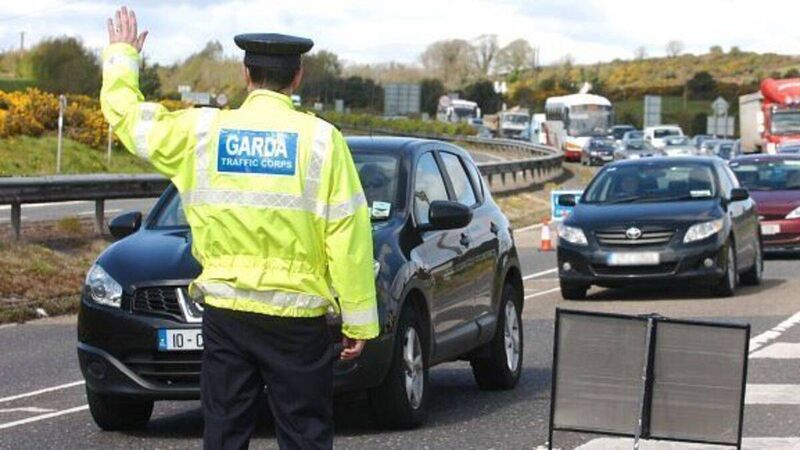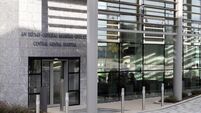Irish Examiner view: Commissioner must restore faith in rule of law

There are other factors involved in the number of serious traffic accidents, but the fact that 'noticeable' numbers of the enforcement agency policing this area are unproductive only serves to embolden those breaking the law on the roads.
The Crowe Report, an independent review of roads policing which was published yesterday morning, makes for difficult reading — and not just for the gardaí.
The report finds that a majority of gardaí involved in roads policing are productive and professional, but it has also highlighted issues with poor productivity and behaviour among a “noticeable” minority, stating some are “unproductive” and appear “demotivated and unconcerned” with doing their jobs properly.
This is deeply concerning on many levels. The number of road deaths this year, at the time of writing, was 103, which is higher than two fatalities per week. The fact that the section of An Garda Síochána charged with policing the roads has been condemned in such trenchant language by an independent review will not instil confidence in the safety of our road systems.
There are other factors involved in the number of serious traffic accidents, but the fact that “noticeable” numbers of the enforcement agency policing this area are unproductive only serves to embolden those breaking the law on the roads.
In addition, the report’s findings also do little for the standing of the Gardaí generally. It is widely accepted that the job of a garda has rarely been more difficult, and revelations such as this undermine the authority of the force across the board. It is also the latest in a series of scandals involving serving members of the force. These have ranged from a former garda jailed for inciting men to rape a female colleague and her daughters, to another former garda who was convicted of selling cocaine.
These, and other matters, are sure to loom large in the in-tray of incoming Garda Commissioner Justin Kelly, who takes up his new role on September 1.
His immediate predecessor, Drew Harris, has drawn plenty of criticism in recent years, and it remains to be seen how his tenure will be evaluated in the long term, but Mr Kelly has more than enough to contend with himself next month.
A lack of confidence in the gardaí means a lack of confidence in the rule of law.
On Friday, US president Donald Trump and Russian president Vladimir Putin are to meet in Alaska, with the war in Ukraine expected to dominate the agenda.
This, the blandest statement of the facts possible, is about as decisive as anyone can be about this meeting; long experience has taught us all to treat anything said or promised by Mr Trump with extreme caution.
It might be worth noting, for instance, that some residents of Anchorage, Alaska, have pointed to their president initially saying he was meeting Mr Putin in Russia and have — half-jokingly — sought assurances that their state will not be sold back to Russia.
The fact that a discussion of Ukraine’s future is being held without the presence of that country’s president, Volodymyr Zelenskyy, is an obvious caveat ahead of any agreements that might emerge from those discussions.
Mr Zelenskyy has been in Britain in recent days holding talks with British prime minister Keir Starmer. Even at a remove of several thousand kilometres, the Ukrainian president articulated what might be expected from the discussions in Alaska when discussing his meeting with Mr Starmer: “We discussed expectations from the meeting in Alaska and possible prospects. We also discussed in detail the security guarantees that could make peace truly sustainable if the United States manages to pressure Russia into stopping the killings and engaging in genuine, meaningful diplomacy.” As someone who has seen at first hand the impact of Mr Putin’s attacks on his country, it is no surprise that Mr Zelenskyy isolated the two linked issues which are involved here.
What specific security guarantees could make peace sustainable? Can Russia, as the aggressor in this conflict, be trusted to accept and maintain such guarantees?
In order to do so, as Mr Zelenskyy pointed out, Russia would have to stop the killings and engage in meaningful diplomacy. More meaningful diplomacy than lunch with Mr Trump in Alaska, at any rate.
The recent warm weather has probably encouraged many readers to enjoy the outdoors, which makes recent warnings about the Asian hornet all the more timely.
An invasive species, the hornet is native to South-East Asia, but has spread to Europe in recent decades. One was spotted in Cork by a member of the public, sparking a biosecurity alert, but the National Parks and Wildlife Service has since said the hornet has been captured, and the Government has convened a taskforce to co-ordinate a response to the sighting.
The presence of the Asian hornet is a serious matter — although it does not pose a significant public health risk, even a single hornet nest has the potential to devastate native bee populations. Given how central bees are to our entire ecosystem, it is no surprise that this is being taken very seriously by the Government.
The official advice is that people continue to keep their eyes open and report any sightings of the Asian hornet, but to avoid disturbing or capturing them.
The good news is that there is no evidence of a nest, while the fact that a member of the public identified the hornet is also encouraging. As minister of state for biodiversity Christopher O’Sullivan said, this shows “members of the public are our eyes on the ground”. Long may that continue.





